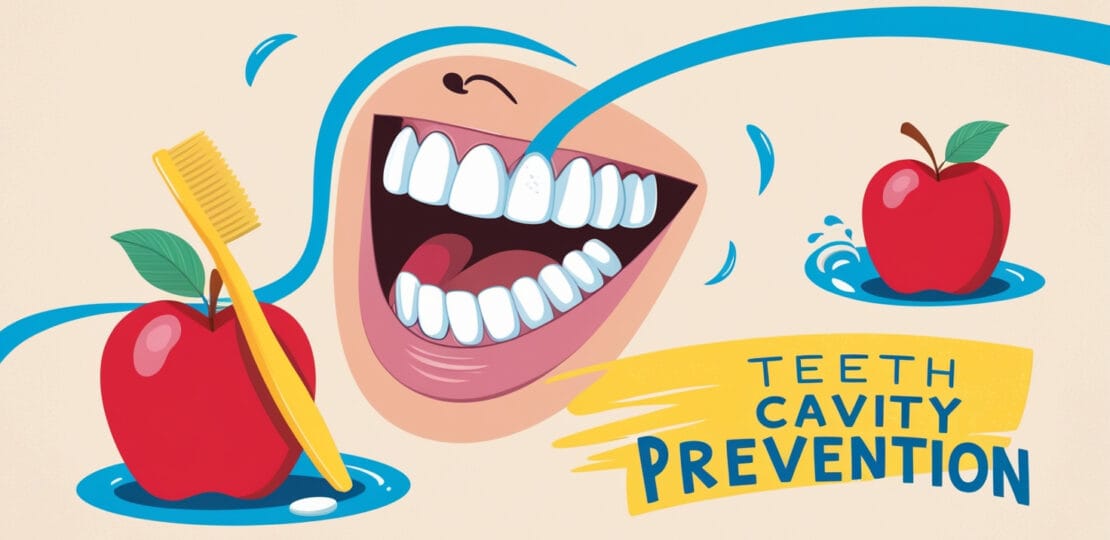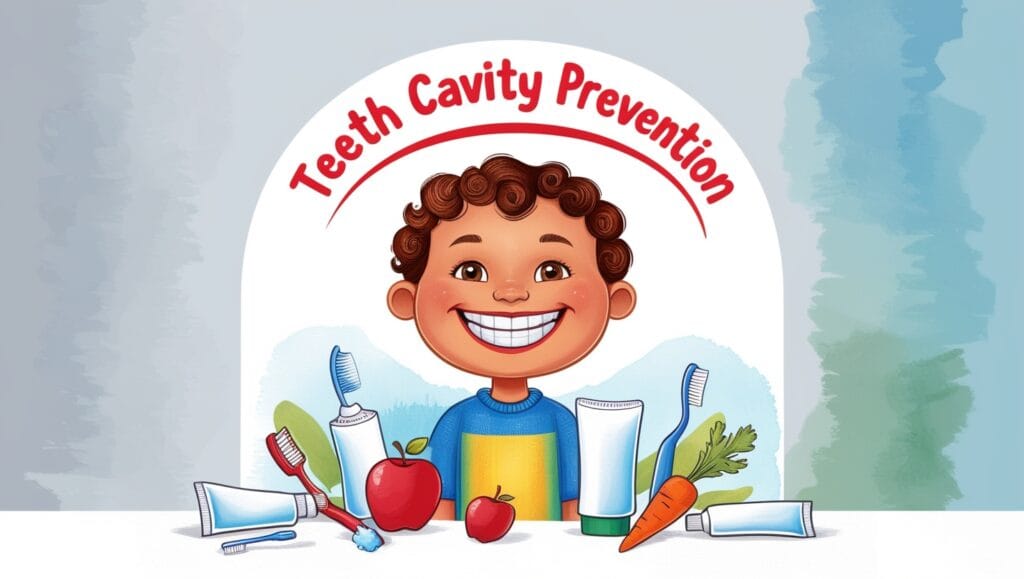Tips For Cavity Prevention Without Going To The Dentist
September 14, 2024 | by Vladimir Unguru

Have you ever wondered what steps you can take to prevent cavities without the need to visit a dentist? Many people share this curiosity, and with good reason. Maintaining optimal oral health is crucial, and knowing how to protect your teeth from cavities through everyday practices can save you trouble and discomfort in the long run.
Understanding Cavities
What Are Cavities?
Cavities, also known as dental caries or tooth decay, are a result of permanent damage to the hard surface of your teeth. They develop into tiny openings or holes which, if left untreated, continue to grow and can eventually lead to severe toothache, infections, and even tooth loss.
How Do Cavities Form?
Cavities form due to the combination of bacteria, sugar, and acid. Bacteria in your mouth feed on sugars from the food and drinks you consume, producing acid that slowly erodes your tooth enamel. Over time, repeated acid attacks weaken the enamel and create cavities.
Tips For Cavity Prevention
Preventing cavities doesn’t have to involve frequent visits to a dentist. Implementing a few straightforward changes in your daily routine can make a significant difference in your oral health.
Maintain Proper Oral Hygiene
Brush Your Teeth Twice a Day
Brushing your teeth at least twice a day with fluoride toothpaste is a cornerstone habit for good oral hygiene. Fluoride helps to remineralize the enamel, making your teeth more resistant to acid attacks.
▶ Tip: Use a soft-bristled toothbrush and replace it every three months or sooner if the bristles are frayed.
Floss Daily
Flossing helps remove food particles and plaque from between your teeth and under the gum line where a toothbrush can’t reach. Make it a habit to floss daily to prevent bacterial buildup.
Use Mouthwash Regularly
An antibacterial mouthwash can reduce plaque and bacteria levels in your mouth, while fluoride mouthwash strengthens enamel. Rinsing with mouthwash after brushing and flossing can provide an extra layer of protection against cavities.
Watch Your Diet
Reduce Sugar Intake
Limiting the amount of sugar you consume is one of the most effective ways to prevent cavities. Pay attention to the sugar content of processed foods and beverages, as hidden sugars are rampant in many products.
▶ Good Practice: Instead of sugary snacks, opt for fruits, vegetables, and nuts which are healthier alternatives.
Drink Plenty of Water
Water helps wash away food particles and keeps your mouth hydrated. Drinking fluoridated water can also strengthen your teeth. Aim to drink water after every meal or snack to rinse your mouth clean.
Avoid Frequent Snacking
Constant snacking increases the amount of time your teeth are exposed to sugars and acids. Stick to main meals and avoid grazing throughout the day to reduce the risk of cavity formation.
Opt for Teeth-Friendly Foods
Some foods naturally promote good oral health by stimulating saliva production, which neutralizes acids and helps repair tooth enamel. Examples of such foods include:
- Dairy products (milk, cheese, yogurt)
- Leafy greens (spinach, kale)
- Crunchy fruits and vegetables (apples, carrots, celery)
Chew Sugar-Free Gum
Chewing sugar-free gum can be beneficial as it stimulates saliva flow, washing away food particles and neutralizing acids. Look for gum containing xylitol, a sugar substitute that has been shown to reduce bacteria levels in the mouth.
Incorporate Protective Products
In addition to dietary and lifestyle changes, using certain oral care products can enhance your cavity prevention efforts.
Fluoride Treatments
Fluoride toothpaste and mouthwash can help remineralize weakened enamel, giving you stronger and healthier teeth. If you’re concerned about fluoride intake, toothpaste with nano-hydroxyapatite is a non-fluoridated alternative that also promotes enamel strength.
Dental Sealants
Dental sealants are a protective coating applied to the chewing surfaces of the back teeth. They create a barrier against harmful bacteria and can last several years, significantly reducing the risk of cavities.
Common Misconceptions
Understanding common misconceptions about cavity prevention is essential to ensure you’re following the most effective practices.
Natural Remedies Are Always Safe
While natural remedies like oil pulling or using charcoal toothpaste can offer some benefits, they are not substitutes for proven dental care practices. Always complement natural remedies with regular brushing, flossing, and professional advice if needed.
No Pain Means No Cavities
Pain is not always an indicator of cavities, especially in the early stages. Cavities can develop quietly without causing immediate discomfort, which is why maintaining regular oral hygiene practices is crucial.

Conclusion
Preventing cavities doesn’t always require frequent visits to the dentist. By adopting proper oral hygiene habits, making mindful dietary choices, and utilizing protective products, you can dramatically reduce your risk of developing cavities. Remember, consistent effort is key to maintaining a healthy smile.
FAQ
Can cavities heal themselves?
Unfortunately, cavities do not heal on their own. Once your enamel has been damaged, you need professional treatment to restore it. However, early-stage tooth decay can be reversed with fluoride treatment and proper oral care.
Are there any foods that help prevent cavities?
Yes, certain foods can promote oral health due to their nutrient content and ability to stimulate saliva production. Dairy products, leafy greens, and crunchy fruits and vegetables are particularly good for your teeth.
How effective is chewing sugar-free gum in preventing cavities?
Chewing sugar-free gum, especially those with xylitol, can help prevent cavities by increasing saliva flow, which helps wash away food particles and neutralizes acids.
Is it safe to use fluoride products every day?
Yes, the regular use of fluoride toothpaste and mouthwash is safe for most people and helps strengthen tooth enamel, making it more resistant to decay. If you have specific concerns about fluoride, consult a dental professional.
Does drinking water actually help prevent cavities?
Absolutely. Drinking water, especially fluoridated water, helps rinse food particles and sugars from your mouth, thereby reducing the risk of cavity formation. Water also keeps you hydrated, supporting saliva production which protects your teeth.
What should I do if I suspect I have a cavity?
If you suspect you have a cavity, it’s important to seek professional dental care. Early detection and treatment can prevent the cavity from worsening and causing more severe dental issues.
It is said that myths have a grain of truth in them. What about dental myths?



